In Part I of this series, They Just Don’t Understand Living Gluten Free (Identifying Types of Gluten-Full Friends and Family, I shared how frustrating it can be for those of us who are gluten free to deal with gluten-full friends and family members who don’t understand our gluten-free lifestyle. I categorized our friends and family, as shown below, because I feel that doing so really helps us to know where each person is coming from, so to speak, and helps us know how to respond appropriately … both in regard to our needs and theirs.
Types of Friends and Family
Ignorant, but Well Meaning
Supportive, but Not Quite “There”
Totally “Get It”
Refuse to “Get It” (or Deny They “Get It”)
photo credit: Flick :mrMark:
If Aunt Susie kindly offers you a gluten-full cookie, but you know that she is in the Ignorant, but Well Meaning category, you’re going to respond to her differently than you would Aunt Maggie who has baited you into arguments over your need for a gluten-free diet before, Oh, and Aunt Maggie just told you that she made the Chocolate Cake you used to love, but she knows that you “say” you can’t have it now, but “it’s there if you want some.”
Clearly, Aunt Maggie falls into the Refuse to “Get It” (or Deny They “Get It”) category. You’ll also have a different plan for dealing with each when either is hosting a family event.
Be sure to read Part I to get a full understanding of each category. Note that individuals may transition from categories as they both learn more and become more accepting. I think the examples of real-life situations shared in Part I will help you better understand the need for the strategies and tips that our contributing bloggers are offering today for Part II.
Hopefully, both posts will help you develop your own strategies for dealing with friends and family. I am so grateful to all these wonderful blogger friends for offering this heartfelt input and their valuable strategies! They’ve done such an excellent job that I’m going to let them do all the talking. Without further ado, and in no particular order, here they are.
Strategies for Dealing with Friends and Family
From Members of the Gluten-Free Community
~ Lillian (Lillian’s Test Kitchen)
“For me, different family and friends all require different strategies and it can be exhausting trying to keep track of it all. I used to feel bad about not feeling like I can eat at my sister’s house. But I don’t anymore. She has three kids and the whole house is like a gluten-bomb, so when I go to her house, I don’t eat anything. It’s just too risky. When I’m there helping her with the kids, I bring some carrot sticks from home, a protein shake, and spend a lot of time washing my hands. And I rewash the glasses before I drink from them.
I try to do this as subtly as possible as to not make her feel terrible. I know she tries, but she’s overwhelmed with the kids and she’s just not set up to have a safe space for me. She’ll try to have food for me every once in a while, but it’s just too scary and I can’t relax, so I eat dinner beforehand and bring a few snacks. I’m there to spend time with her and the kids, not to eat. Once I made that switch in my head, it’s been easier and I feel less resentful about it, although, no less cautious.
With my friends, I mostly invite them for dinner to my apartment. That solves a lot of problems.
I miss being able to just open the fridge at my mom’s house and eating something, but I can’t do that anymore. She doesn’t eat a lot of bread and cheese, but my dad does. So, when I go over there for dinner, I immediately get clean dish rags and clean dish towels, I wipe down all the surfaces, and check with my mom about what I can eat and what I can’t. She’s careful about preparing food for me so I know I can trust her, but I still stay vigilant during dinner to make sure that no one contaminates the dishes. To mitigate this, I’ve started dishing up my food before anyone else, which is totally understood and no one looks at me weird. I always take a bit more than I think I’m going to want, just in case I want seconds. Because once everyone sits down and starts eating, I probably won’t be able to take more safely. So, it’s not necessarily relaxing, but it’s very important to be with everyone, so I do it.
This is suuuper loaded. And hard to navigate. But it can be done.”
photo credit: Flickr notahipster
~ Stephanie (A Year of Slow Cooking and much more at stephanieodea.com. See all of Stephanie’s helpful books here.)
“Since we have a 7-year-old with Celiac, it’s a bit different for our family, but this is what I do each and every time we’re attending an event— birthday party, school party, dinner with friends, dinner with family.
I always ask what the menu includes, and then decide whether or not there’s enough food for my little one to eat (hot dogs no bun, fruit salad, etc.) If a green salad is being served, I specifically ask if there will be croutons in it or those Chinese crunchy noodle things. Many times, just by asking I can get the host to see what I’m angling for and she decides not to toss the salad.
If she can’t eat the main dish I bring along our own version of what is being served. I also bring along our own cupcakes, cookies, etc. to school events or birthday parties. Then, at the party, I put our food on the birthday plates– and usually go out of my way to make sure our food has really good frosting, sprinkles, etc.
Most school events revolve around pizza or a pasta feed. I always bring our own. I’d also encourage any parents with children in school to talk to the school administrators, get to know the PTA, teachers, other parents— be friendly, and offer to bring treats for the whole class to enjoy. When there is a sign-up, I try my hardest to be the “main” sweet that is exciting for the kids, so then I can bring GF rice krispie treats, GF brownies, etc. If I’m a supplemental snack, then I’ll bring packaged cookies that are GF (we like the Trader Joe’s choc chip cookies and the kinnikinnick oreo cookies).
I have a freezer full of cupcakes, individually wrapped in ziplock bags. If there’s a party at school, I thaw then frost with tubbed frosting and add our own sprinkles. We use these cupcake holders.
We can usually figure out enough food to eat at potlucks, and I always bring a chili or main bean dish that I know she can fill up on if needed. Our taco soup is a big hit, and I make sure to feed her from the pot first before the spoon gets contaminated, and I always have snacks in my purse. I’m perfectly fine with the kids eating junk food when out of the house, so if she needs to eat a PayDay or Snickers to fill up, so be it.”
photo credit: Flickr ella novak
~ Katie (g-free kid and author of Mommy, What Is Celiac Disease?)
“My daughters and I (all gluten-free) have the attitude that most people mean well and are trying their best. For instance, my Dad, who has known I’ve been gluten-free for almost 5 years now (and that my girls are too) still offers us regular cookies, muffins and other treats when we are at his house. We just smile at each other (and sometimes laugh) and say, “We’d love to, but we can’t eat that.” Then he grimaces and says “oops” or something to let us know that he just plain forgot. In all honesty, it doesn’t bother us in the least. We know he’s just trying to show hospitality and that he genuinely forgot (in that particular moment) that we can’t eat things like that. On the other hand, he also finds and clips newspaper articles for me pertaining to the gluten-free diet, and will proudly show us when he finds a candy or food product labeled “gluten-free”.
We also have other friends and relatives that forget sometimes, but we don’t take it personally. We realize that even though it is a huge part of our daily lives, that other people may not even have thought twice about it since we were all diagnosed. Everyone has their own lives to lead and their own to-do lists to worry about, and we don’t expect people to cater to us and make our personal priorities their own.
On the other hand, people who we didn’t realize even knew we were gluten-free will bring a gluten-free dessert in for church coffee hour which is always a nice surprise. Whatever it is (as long as we can read a label, which people usually realize needs to be done) we eat it and express our enjoyment and gratitude for their thoughtfulness. There have been many times where the girls pretended to like something, knowing that it is the right thing to do when someone puts forth the effort.”
photo credit: Flickr UU-Jackson
~ Iris (The Daily Dietribe and co-author of The Essential Gluten-Free Baking Guide Part 1 and The Essential Gluten-Free Baking Guide Part 2)
“My #1 piece of advice is to be CONSISTENT and CLEAR. Let your friends and family know ahead of time what foods you absolutely cannot eat and what that means. Explain to them how food can be cross-contaminated and assure them that you are more than happy to bring your own food or a dish to share if that’s easier. In most situations, you’ll find that people really want to make you feel at home, and will go out of their way to make something you can eat. They just need clear guidelines for doing so.
The absolute worst thing you can do (and I know this from seeing other people do it) is to say you can’t eat something and then cave under the pressure of not wanting to inconvenience anyone. If you’re not consistent, your restrictions will not be taken seriously. It may take months for people to get it but eventually, they will just accept it as the norm.
Oh and one more thing! 🙂 if you’re enthusiastic about your diet, other people will be too! Share all the positive benefits you get from eating the way you do, talk about creative ways to cook, and bring a favorite dish to share that you know will be a crowd-pleaser. When people taste how good gluten-free can be, they will be more open to learning more about it and it will be easier for them to cook for you!”
photo credit: Flickr anthro_aya
~ Cheryl (Gluten Free Goodness; Registered Dietitian and much more … you can also find her at Harris Whole Health)
“I come from a Middle Eastern family, so many have a “feeding disorder”. We need to feed everyone, and get upset if we can’t! For people who I know do really want to help and accommodate me, I give very specific instructions, i.e. if they are grilling, please just leave one piece of chicken or fish plain, and grill it on foil, along with a foil-wrapped sweet potato. Or I give an easy-to-find brand name. That way, they aren’t scurrying around, they get to feed me, and I get to eat. Win/win/win.
I do have people in my life that don’t accommodate me for a variety of reasons and it is such an upsetting thing for me. I haven’t figured out the best way to relate to that yet, even after all these years.”
photo credit: Flickr batigolix
~ Heather (Gluten Free Cat)
“I’ve had the most success with calling the hostess ahead of time. I let her know how thankful I am that she invited me to her event but that I have challenging food allergy issues that might make eating at her home challenging. I offer to bring a dish to share with everyone. (This also ensures that I’ll have at least one 100% safe dish for me to eat.) And I also ask what is on the menu. Oftentimes, there are sides that are naturally gluten-free that I can enjoy.
I’ve also found that I can easily suggest a switch of products like changing flour tortillas to corn tortillas. We talk about cross-contamination during kitchen prep, and I have her save product labels so I can read them when I arrive as a double-check. No one wants to get sick when going to a friend’s home for dinner. But I’ve learned that it’s better to accept invitations and do the prep work than turn down invitations. Relationships are worth it.”
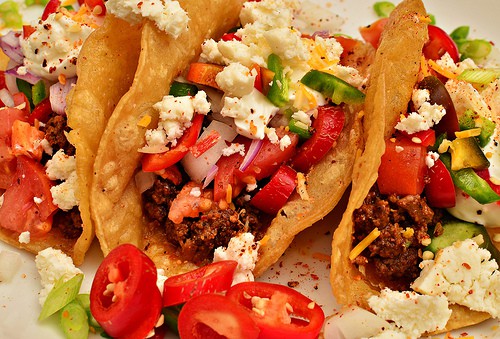
~ Amber (The Tasty Alternative; unfortunately this site is no longer active)
“When I know in advance that I’ll be involved in a food event that I (and my son) can’t take part in, I always bring my own food, and I believe this is pretty standard for those of us with alternative diets, food sensitivities or allergies. If it’s a gathering of friends, I don’t need to communicate our situation further than, “Please don’t worry about making anything special for us, I’ve got it covered.”
I don’t expect my friends to become gluten free/dairy free/sugar free bakers overnight. So I always check in with friends to let them know we’re good. If I don’t know the host(ess) very well, I take a moment and communicate via email (or phone) and share our food situation, what we will be bringing and why. I feel that providing this information decreases the confusion and/or irritation from not partaking in the food festivities. Party planning can be stressful, and so I feel this is a courtesy. Again, it acts as a buffer when meal time arrives. No surprises, everyone is in the know.
Now, taking this a step further, a situation may arise where the host(ess) or another person in attendance may project frustration or irritation toward you. In these cases, it’s important to practice good relaxation and coping skills, and have someone you can check in afterward and process your feelings.
Recently, I had a very aggravating and emotional encounter with a father at a birthday party. Long story short, my husband was out of town so I took my daughter to her birthday party and stayed there with Ethan. I really like the mother (of the birthday girl), and we are becoming fast friends, but only met the father twice (and briefly). I brought food for Ethan and me, and some dessert (like always) and let her know in advance, but she didn’t share this with the father. When it came time for lunch, he kept asking me if I wanted the food, over and over, and why not and OH MY GOD YOU CAN’T EAT WHAT, and WHY!? Then it was time for cupcakes and he asked me (I’m not kidding) about 3 times if I wanted cupcakes, and they are so good, are you sure, etc. It was miserable.
What angered me was the way he looked at me and the way he reacted, he was clearly offended and apathetic to our obvious sensitivities. I nearly made myself sick from the anxiety (and nearly cried). It was not a pleasant experience. Luckily this scenario doesn’t happen very often, but when it does, it sure stings!
photo credit: Flickr csullens
My advice to anyone who may encounter a rather apathetic or insensitive individual at a gathering is to:
- Expect this might happen and have a script memorized (explaining your situation in a clear, kind manner) – this allows you to clearly express yourself, even if you are feeling upset;
- Set good boundaries. It’s okay to excuse yourself from a negative conversation – this is your right so feel empowered to do so (and, really, you just can’t argue with ignorance);
- BREATHE! Take a moment, go into a bathroom or a quiet place, and take a few deep, healing breaths. Have some positive visuals, mantras, do a few jumping jacks, anything you can to guide your thoughts back to a safe, healthy place and combat the anxiety; and finally,
- Have a go-to person to talk with and process feelings.
These encounters can be difficult and we need to share them, process them, and move on. It’s an opportunity to identify our triggers, our emotional self, and our strengths. We can’t control the behavior of others, but we can certainly control our thoughts and behavior. Those of us living in the world of alternative diets juggle not only the obvious tangible change but the emotional and physiological change that comes with it. It can be done, and we will be better, more empathetic and mindful people because of it!”)
~ Kristin (Slightly Irritating & Inconvenient; Registered Holistic Nutritionist)
“I personally receive a lot of flak from family especially, since they’re not afraid to verbalize their opinions. I find that explaining how gluten damages your body (regardless of how much) when you’re being pressured by grandma to have a piece of pie for dessert is beneficial… even if you have to remind grandma every time you come for a visit!
Perhaps a stop by your local allergen-friendly bakery en route to grandma’s to pick up dessert next time might be in order! Bringing dessert for everyone can solve the great pie dilemma (without making a point of you having your own “special pie”), but that still leaves the meal beforehand. Offer to host Thanksgiving dinner at your house this fall! Show them that gluten-free doesn’t have to taste like school glue.
Allergies can be perceived as a weakness, but educating people on how you’re healing your body puts your journey toward health in a positive light. If that’s a no-go, arrive early and see if you can help prepare some of the dishes. If pork chops with cream of mushroom soup must be on the menu, offer to bring soup made at home instead of it coming out of a not-so-gluten-free can. Bring a veggie platter if nothing else, but remember that unless you want to be hiding out in the kitchen prepping for years to come, education is key.”
photo credit: Flickr cizauskas
~ Maggie (She Let Them Eat Cake)
“I have thought long and hard about this topic since my husband and I have been living with his celiac diagnosis for almost 8 years. Things got a little more complicated when our then 3-year old son was diagnosed with gluten, dairy, and egg sensitivities. I’ve learned that having a positive attitude is a huge help for my family when it comes to dealing with gluten-full friends and family.
Here are my top five strategies for dealing with gluten-full friends and family:
- Bring your own food, and bring a little extra to share. People are always interested in what we’re eating so I like to bring extra so they can try our food too. Also, it doesn’t leave my kids feeling like they’re the only ones eating gluten-free crackers or goodies. Most of my family (including extended) now eats gluten-free crackers all the time! I don’t even have to worry about bringing them anymore.
- Model, model, model! Everyone is always watching you (especially your kids) so I make healthy and allergy-friendly food choices too. And I’m always happy to talk about our lifestyle, provided they’re interested and asking.
- Give what you want to get. This is my motto for life and I think it really applies to dealing with gluten-full family and friends. I want respect for my parenting and my family’s food choices, so I make sure I give other people respect for their food choices. Also, if someone makes a comment under their breath (usually about my poor deprived kids because they can’t eat whatever), I choose to ignore it. That comment is only coming from a place of fear of the unknown and fear of change. I would never comment like that and I know I have made the right decision for my family.
- Let it (them) go. This is one I’m always working on (ie letting go of negative comments or judgments from others). I whisper it to myself all the time and it makes me feel so much better. If someone is judging me or my family, I simply let it go and refuse to worry about it or dwell on it. It has nothing to do with me and everything to do with them.
- Surround yourself with positive people. Truthfully, I have never encountered many problems and I believe it’s because I have a positive attitude about the kind of people I want in my life and in my family’s lives. Sure, I encounter people who are negative or unsupportive, but I definitely don’t seek them out. What often happens is after letting these people go, they come back to me because they’re looking for advice or more information about living a gluten-free lifestyle.
I think this quote is perfect to close with – “You must be the change you want to see in the world.” Mahatma Gandhi
photo credit: Flickr savannahgrandfather
~ Debi (Hunter’s Lyonesse)
“I have been blessed with family and friends who, for the most part, will take the time to understand why I can’t have gluten or dairy and what happens to me if I do. They ask question after question after question because they want to understand why some things we were all raised to believe were good for us can make me so sick and not them. I take these questions as an invitation to educate and do so wholeheartedly.
There are some who still don’t really understand, so going out to eat or over to their home is worrisome to me. I limit those situations with them. It’s easier for me and for them.
My family was very accommodating when it came to meals when I was home last month. I did have a condo to prepare my own meals just in case and I kept snacks with me. A lot of relatives were bringing food in for us and if I wanted it, I had to ask before dishing it out. Some of the grandmas cook like I do. They just throw stuff in without measuring. And sometimes they can’t remember everything. I was asking one of them what was in her stew and this was her first encounter with my diet. She looked at me a little incredulous, so I clarified and told her what I couldn’t have. Then she broke down what made her broth. Beef flavor was one of the ingredients, which seemed like it wouldn’t be good for me, so I passed. I had to tell another grandma I couldn’t have her dish she brought one night because it had shoyu (soy sauce). She was upset that she brought something I couldn’t have, even though she didn’t know beforehand that I couldn’t have it.
I haven’t had the experience of someone close to me telling me, “Just have a bite, it won’t hurt.” like some of you have. I hope I never have that moment. But, if I do, I will let the person know that it is not okay to have “just a bite,” nor is it okay to try to pressure me or anyone else into having something that causes sickness. If it is someone I’m close to and it hinders our relationship, I will at least know that I asserted myself and my health.”
photo credit: Flickr ryangwu82
~ Deanna (The Mommy Bowl)
“I feel blessed that most of my friends and family are either in the “get it” camp or at least try to get it. That being said, any time someone that doesn’t have a food intolerance is trying to feed someone that does, there are bound to be missteps. I try to take it all in stride. If I’m going to a party with food, I always offer to bring something along that’s safe for me to eat. If it’s not appropriate to bring my own food, I’ll eat beforehand. If I find myself unexpectedly in a situation with no safe food, I remind myself that no one ever died from skipping one meal. I also try not to make a big deal about it, but I do try to educate friends. Last night a friend sad, “I’m sorry you won’t be able to eat the guacamole – it has sour cream in it.” I laughed and said, “that’s okay, I couldn’t eat it anyway, because the chips that were dipped in it have wheat in them!” We got to laugh, and my friends were reminded that cross-contamination is an issue for me. (Of course, these are good friends that I know well and wouldn’t be offended.)
Mostly, I try to remember – food is fuel. We need it to live and those of us with intolerances need the right food to live well. But, friendship and family are far more important in the long run. I’d rather be hungry among friends, than full and lonely—because that’s a much harder hunger to feed.
Photo credit: Flickr jlastras
And here’s a terrific post from Heidi (Adventures of a Gluten-Free Mom) on How to Talk to Friends and Family About Your Child’s Dietary Needs Without Scaring Them Off. (This post is part of the KISS series for Celiac Awareness Month over at The National Foundation for Celiac Awareness blog.) When you can share the information on your child’s (or your) special dietary needs without completely scaring everyone, it’s for everyone’s benefit.
Please share some of your own strategies with us and perhaps even situations that you still find challenging; some of us may be able to offer specific suggestions to you.
Originally published May 10, 2012; updated October 12, 2021.
![They just don't understand living gluten free strategies for dealing with gluten-full friends and family members. [from GlutenFreeEasily.com] They just don't understand living gluten free strategies for dealing with gluten-full friends and family members. [from GlutenFreeEasily.com]](https://glutenfreeeasily.com/wp-content/uploads/2012/05/Dealing-with-Family-Flickr-what_i_see.jpg)
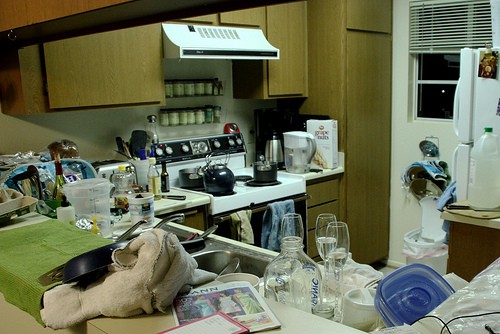
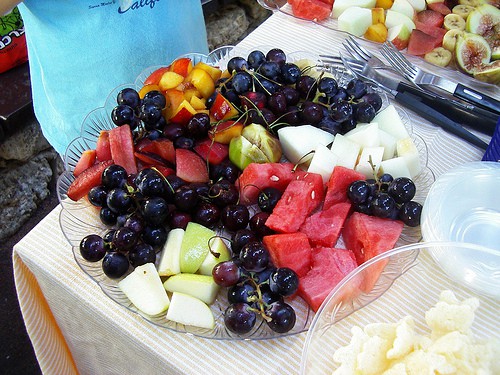
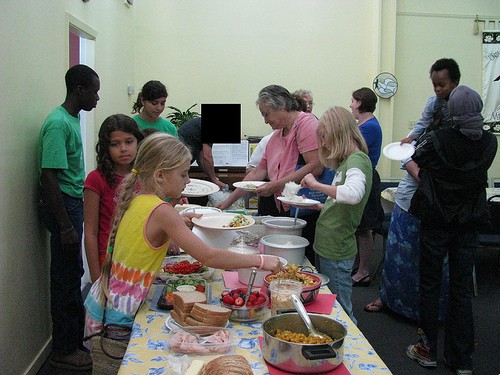
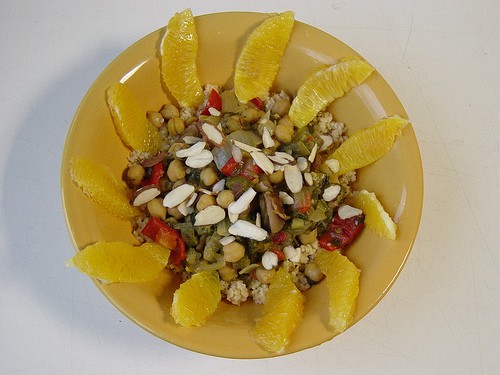
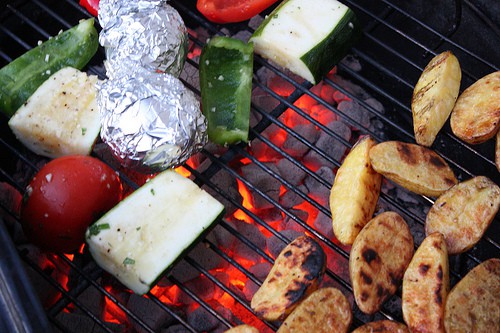

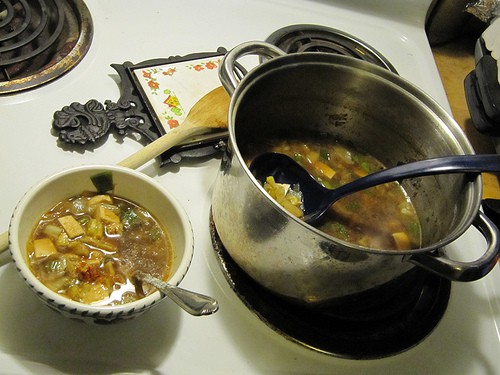


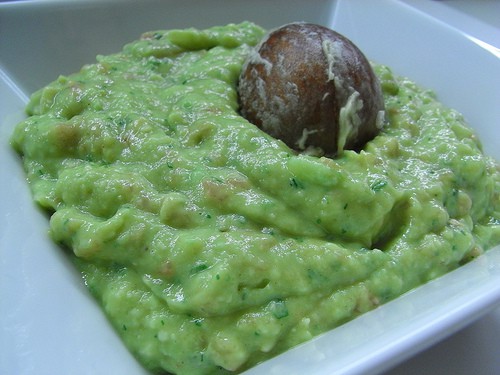
Melissa @ glutenfreeforgood says
Wow, what a wealth of good information. I do think most people mean well. It’s just not on their radar, even if they do have family members who are GF. It’s not ingrained in their personalities like it is with us. Iris’ advice about being consistent and clear is key. You don’t have to make a big deal out of it, just stay the course. Say the same thing over and over. “This is important for my health and something I must adhere to.” I eat before I go anywhere and I always have healthy snacks on hand. It’s a lot harder with kids, but some of these moms are proving that it’s not impossible. I have never seen cupcake holders like Steph linked to. Wow, leave it to her to be super organized. =)
Great follow-up post, Shirley.
Melissa
Shirley says
Hi Melissa–Obviously, I’m WAY behind on replying to comments on this post. 😉 Thanks so much for your comment! You make several great points. I love that you share your own approach, too. Who can argue with those words? Not anyone who can be backed up certainly! Yes, we have many rockin’ gluten-free moms who are teaching their kids to be independent and proud of how they eat! Those cupcake holders are super cute and most importantly do the job, and I absolutely agree on Steph, who is Totally Together just like her book. 🙂
Shirley
Katie says
Shirley, Thanks for collecting all of these different perspectives. I definitely think you have every type of personality covered here, and there is so much good advice for parents of g-free kids here that I can’t wait to share. I’m sure this post will inspire and guide many people to better responses rather than hasty reactions.
Shirley says
Hi Katie–I think sometimes just being able to share the frustrations with someone, and know that others experience the same, makes it all more bearable the next go ’round. As an adult, I’ve actually been somewhat amused at times because others’ intolerance to my food issues is so predictable. Kids bring in much different factors though, so I’m glad you found so much good to take away and use with your audience for g-free kids! 🙂
Shirley
Linda says
I haven’t read through it all, but I can tell this is a great resource for people. Thankfully, I have had very understanding family and friends who are eager to be informed. They get it. But I know many people are not so fortunate, and I’m sure they will find these different perspectives and ideas helpful. Great job, Shirley.
Shirley says
Thanks, Linda! I’m so lucky that so many chimed in with such great strategies. 🙂 I’m happy for those like you who have such understanding and “eager-to-learn-and-take-care-of-you” friends and family. For the most part, I do, too, but I can still relate to Part I and know that it’s a big issue for so many here at gfe.
Shirley
Ina Gawne says
Shirley – there is some fabulous information here! Reading through reminded me of the same situations I have been in and brought up all the feelings that go along with it! Fortunately, I’ve learned over the years to be very straight forward about how Celiac Disease is a normal part of my life. If we are invited out, I always bring my own food, as well as a dish that can be shared with everyone. Better safe than sorry! Thanks for another great post!
Shirley says
Ina–I think that’s the very best approach, teaching that celiac is a normal part of life. We don’t have to hide it, and I always feel that someone benefits when celiac/gluten intolerance/non-celiac gluten sensitivity is even brought up. So many remain undiagnosed; just the mention and a few facts can put someone with symptoms on the path to diagnosis! I’m sure you are very welcome at gatherings, dear, with your two dishes in hand! 😉 I know that you are showing everyone how delicious gluten free really is—gluten free delightfully delicious in fact. 🙂
Shirley
Delise Dickard says
When I bring it up (which I was shy to do at first) I notice many people want to know more. I also met one woman at a gf event who said she had celiac disease and was constantly getting exposed. She lived and worked in a gluten rich environment. I explained,I finally had to say to my family: “Look, its me or the gluten! One has to go. I can’t live getting sick every third week” Thankfully they kept me. She said my story gave her courage so I think we help so much when we speak up.
Stephanie ODea says
What a fantastic source of information—-thank you for taking the time to write this series–it will be so very very helpful. When we were first diagnosed, I searched for “real-life” stories of how people handled get togethers and family events. I wish I had this resource when we first started out!
thank you again, Shirley. xoxo
Shirley says
Hi Steph–Thanks so much for your wonderful feedback and sharing what you did when your family was first diagnosed (I LOVE your whole family approach!). I’ve said many times that nothing beats personal stories. They show us so much more than some empty guidance on a page or website. I appreciate you being a part of this resource; I know your input will help so many! Heck, those cupcake holders alone could be a lifesaver for many. No kidding! 🙂
xoxo,
Shirley
Faith says
This was wonderful Shirley. In a way I’m lucky because my family is very small. I’ve only had to deal with my husband and my 2 daughters regarding being gf. My 2 daughter are grown and on their own, so I just had my husband who I had to educated. The best way I found to do this is by example. In the beginning, I always cooked 2 different kinds of pasta, and even now I will cook 2 different meals for dinner. It’s taken a while for my husband to understand, but now he gets it. When we are deciding where to eat out, he will as if a particular restaurant will have something for me to eat. My husband will not eat all things gf, but I now only cook gf pasta. Leading by example, so people can see is the best way to educate people.
Shirley says
Hey Faith–I do have to agree that smaller families can make the “dealing” easier, and I love that you lead by example. I’m really glad you’ve moved to cooking one thing vs two separate things always. If the food is gluten free–with naturally gf my preference–and it’s good, then two meals are not necessary. Doing that can be exhausting IMO. Anyway, so glad progress has been made! 🙂
Shirley
Faith says
I think what really helps when being gf is having support and having the people you live with understand what you’re going thru. That makes a HUGE difference. Plus, you need to be diligent, otherwise you’re not believable. When I was cooking 2 different kinds of pasta (which was getting to be a challenge), my husband didn’t fully understand, but now he does. There are certain gf foods that he will not eat, and a lot of snacks I’ve made he will eat, but there’s other things that he will not and so I cook something else for myself (no biggie).
My youngest daughter who lives nearby and comes home to do laundry and have dinner understands some. Most things gf she will not eat, I think it’s a texture thing. If she’s coming over, I cook something everybody can eat gf or not.
Thanks, Faith
Shirley says
Hi Faith–For chiming in with your thoughts. I do think that if we have others in our lives who “get it,” that it makes a huge difference on how we fare overall. Yes, clear, consistent, and diligent as you say or folks will start wondering which way you are eating “this time.”
The texture thing is why I mostly stick to flourless, crustless, use a basic gf all-purpose flour mix that includes very finely ground ingredients, etc. I have a personal thing with my textures myself, so I like keeping them the same as gluten-full products. 😉 (Nobody’s ever eaten my dishes and said this has a weird texture.)
Shirley
Alta says
Excellent post! I love that you’ve compiled a lot of different takes on handling the same dilemma. Definitely something for anyone with food allergies/intolerances to take away! Thank you for sharing!
Shirley says
Hi Alta–I really appreciated everyone’s input on this one. We are all so different and have different situations so I think we can pick and choose from the strategies offered. 🙂
Thanks!
Shirley
Shirley says
Alta–I just asked for inputs and these folks offered some terrific suggestions! I really appreciate hearing that you think this post will work for so many in so many different situations. 🙂
Shirley
Shannon Brown says
Great posts. I like reading everyone’s take on their situation. When we go to potlucks, I take a meal for us and enough of something to share. There are too many maybes with food others have made. Deviled eggs made by my MIL seem ok but they have mayo double-dipped from the knife and once she used mustard with wheat in it. (I checked the bottle.)
Shirley says
Shannon–Thanks! I always love reading everyone’s inputs myself. There’s definitely a common thread, of course, but definitely some ideas that one might not think of on one’s own. Great point on that contaminated mayo jar!
Shirley
Shirley says
Thanks, Shannon. Yes, there are way too many maybe’s most of the time. The deviled eggs–and your verification to drive the point home–are a perfect example. Thanks for that reminder!
Shirley
MissKelly says
GREAT Part II! U asked us to share some challenges….here’s one of mine….I am finding it difficult to travel for business and have appropriate food available. I can’t always bring my own “feed bag” and the working lunches are typically never GF with the exception of possibly a bag of chips. Also, during a working lunch, it is not acceptable for me to leave and go get my own lunch especially if we are in a remote location with no stores in a reasonable driving distance. I would love to hear how my professional GF colleagues deal with this particular challenge.
Thanks
Helen says
Call the secretary of whoever is organising the function and ask her to organise a GF plate. If you’re at a working lunch at your own work call catering and ask them to cater for you too! I’ve never had a problem – if anything i get a better “plate” than everyone else!
Shirley says
Helen–Thanks for sharing your input with Kelly and all! I have to agree that many times I/or my gluten-free (+ more free) friends have gotten “better plates” that others drooled over.
Shirley
Debi says
In my last job, I ALWAYS brought my lunch no matter what. Even working lunches. I would pack something in an insulated bag with an ice pack. Not having food was not an option for me and in some areas I had to travel to for the day, were food sparse save for greasy spoons, fast food, and convenience stores. I did have a quarterly meeting I usually had to travel to meet with other people throughout the state. The organization arranged lunch, but they were never able to arrange gf for me, so I just started bringing my own.
In my job now, there are a lot of “fun days” which means a lot of food out in the break room for everyone to share. Typically pizza, sandwiches, and other gluten laden goods. There are some people in charge of these days that do remember my diet and will ask if I want something special. They also remember when I have to participate in a training lunch. The last time we had a training lunch, the person who arranged the food QUADRUPLE checked throughout the ordering and pick-up process to make sure my lunch was gluten and dairy-free.
It’s all a matter of advocating for yourself and preparing ahead of time when your advocating ends in a brick wall. 😀
Shirley says
Debi–I really appreciate your advice to Kelly. Sharing how you’ve handled such similar situations really is helpful to all. 🙂
Shirley
Shirley says
Hey Miss Kelly–I’m so glad you got some feedback already. I echo what folks have said. First, the most important point, which is also reiterating what others have said, you have to be your own advocate. Gluten-free food, “ready to go,” rarely appears at such functions. I may be wrong, but I also sense that you don’t want to appear too different or rock the boat. We all “get that,” but this is a requirement that you eat this way. You can behave matter of factly about it, but still get your needs met. You don’t have to appear much different from Susie Q who won’t eat mayonnaise or salad dressing. Her differences are a choice; but, of course, yours are a requirement. As someone who’s been in the professional world the entire time since going gluten free 9 years ago, I’ve done a little of everything to deal with these situations. I usually have a stash of supplies at my office. I always have nuts. I have a fruit basket on my desk. I have some cans of soup on my shelf. I don’t have food in the freezer because no freezer meals appeal to me personally, but if there are some safe ones you like, you could have those, too. I can grab those items and prepare them pretty quickly (e.g., on a bathroom break) and be back at the meeting with others. Only in moments of complete desperation (meeting called at last minute right at lunch time when I don’t have access to my “stash”), do I rely on the vending machine. Far, far from optimum, but a bottle of water and a Snickers bar or peanut M&Ms can keep you going for a while. As far as my food being different, I don’t care that I’m eating something different from the others. If anyone asks, I just smile and explain, “Oh, I have food allergies.” But when meals are planned ahead and someone is in charge of ordering them, I just kindly request that person order something that will be safe for me. If you have to go away for a conference, you may have to prepare by going out the night before to get food and store it in your room refrigerator (many hotels will provide one if that’s not in your room already; just request when making reservation). I’ve also just gone to the hotel/conf staff early that morning and inquired about the menu. Once I determine what it is, I ask if they can make my plate with “such and such,” but leave off “such and such.” I emphasize that I have food allergies, so they can’t be placed together and then separated. I’ve eaten luncheon meat and cheese rolled up with chips and a salad before. Usually there are options. It’s never a big deal, but it does take some planning and action on your part. Advocate for yourself the way you would for your own child with food issues. Hope that helps! This is the type of thing where the more you do it, the better you get at it and things get smoother/more routine. Good luck!
Shirley
Miss Kelly says
Thanks all for the comments about working lunches or lunches while traveling away from home for work. Since I haven’t traveled much since diagnosis, I have been in a self-controlled comfort zone, so to speak. We prepare all meals at home or I simply get a salad at particular places I know I can trust, here where I live. It has been pretty easy for me, up until the traveling/away meetings started. I was totally not prepared my 1st trip, which made me plan better for the next ones. I think I can have discrete snacks packed and ask for fruit at the meetings and I am fine. Now if I could just be more positive when snide comments are made like “Gee I thought people with your condition loose weight…etc” I’ll be golden! LOL
Delise Dickard says
Ditto on the traveling part. I have found that U.S. airports and airplanes are the worst for gf. One time a 2 hour plane ride turned into 6 and while everyone munched on pretzels, my daughter and I were famished. The steward refused to give us the gf chips, available only to first class. Finally an understanding soul gave my daughter an orange. I’ll never fly again w/o supplies.
When we do travel we pack a suitcase of food and cook our own meals. It actually saves money and we know we are safe. About the snide comments? I now remind myself that this is a worldwide health issue and it is not going away. One day they will understand. But like you, the snide comments are hard for me too.
Mechiell says
Most people do not understand what gluten is. You tell them wheat and still they don’t get the realm of what wheat is in. I think some see us Celiacs as picky eaters even if and when you explain to them its a health matter, not a diet choice. I always rely on myself to carry something I can eat. I truely do appreciate the few in my life who realize what a chore it can be eating somewhere else. I have 1 friend who has a son who is diabetic and she cooks for me, realizes health concerns. Its just my husband and I at home so its pretty easy to be GF in the kitchen as he don’t cook. He does have his few ungluten items he keeps in the house such as cereals ect.
Shirley says
Hi Mechiell–You are right, of course. That’s why in Part I, I reminded folks how “clueless” most of us were before we went gluten free. Yes, there are many who regard us as picky eaters. As many of us have said, we wish that others could see our conditions in the same way they see a peanut allergy.
I’m glad you have family and friends who support you. Even a few of those can make a huge difference. 🙂
Thanks so much for stopping by and taking the time to comment; hope to see you again here at gfe!
Shirley
gailstorm02 says
Thanks for these post, my hubby is supportive but the rest of my very very small family is refuse to get it. Very helpful tips, much needed, this has been very painful for me. Thanks!!!
Helen says
I find if the message simply cannot get across – telling someone “You are deliberately giving me food poisoning” gets their attention!
gailstorm02 says
I’m so PO’d at my sister-in-law over this I do believe I will do this, my son I’ll be an little more patient but not much. Thanks!!!!!
Shirley says
Another reasonable suggestion, Helen. Sometimes we really do have to be blunt and call a spade a spade.
Shirley
Shirley says
Hi gailstorm02–I hope that the more you employ these strategies that the easier all will get for you. As you can see, you’re not alone in experiencing a hard time.
Hugs and good luck!
Shirley
gailstorm02 says
Been reading all post, just wish some were here close to me to chat with seems rough this weeks. but will keep at it, thanks so much!!!
Delise Dickard says
Gailstorm,
Thank heavens for internet and for Shirley for making this conversation happen. I remember almost 2 years ago Shirley saying to me. “It will get easier” and it really does. We are all with you in your struggle, even if it has to be “virtual.” Hang in there!
gailstorm02 says
Well an other holiday gone. I did get invited to my son’s for a cook out. I took appetizers that I knew everyone would like, and they did ; they were gluten free, just the way recipe was written, they talked about how good they tasted and the other grandma had made these once or twice. Kept my mouth shut!!!! Then helping my daughter-in-law get things ready she said “I made a fruit salad but I don’t think it’s ok on your diet, it has vanilla pudding in it. But I have a jello salad with fruit you can have.” I had to control myself not to break down in tears. The first time in 17 months my family has done anything to support me. I’m crying now as I type this. We have not had a meal together in 5 months, this was better then I could ever hope for!!!!! Never thought it would happen so fast with my own child his family. THANKS so much for the tips, I have been trying to wisely apply them ; will continue to do so. It works!!!!!!!
Shirley says
Hi gailstorm–Well, this is really terrific news! It’s possible that this is just the beginning of your family supporting you and being sure there are dishes you can eat. This news warms my heart so, Gail. I am so very happy for you and happy, too, that the tips are working!! Woohoo!!
Happy, happy hugs to you! 🙂
Shirley
Delise says
Gailstorm2
I was touched by your holiday story. I was in Louisiana and just carried a Vera Bradley lunch box of fresh veggies everywhere. With every meal a sea of casseroles, cakes, and pies I had to be safe. Still it was hard. But as my daughter said “down there they take their food personally.” Case in point — one person argued. “what could possibly be wrong with potato salad?” I tried to explain about the hazards of a mayonnaise jar, only to get: “well I don’t have crumbs in MY mayonnaise.”
Shirley says
Hi Delise–Thanks for continuing to come back and share your stories and support others! I will repeat what I told you long ago, it will get easier and easier. 😉 There might still be a few tough moments now and then, but even situations similar to the one you mentioned, you’re likely to handle better over time. Folks get defensive about food they’ve prepared when it’s questioned and passed by. Sometimes it’s good to educate … other times it’s best to let it go. I don’t lie, but in situations like these, I might take advantage of the fact that I also don’t eay soy. Soy is in mayo, so in that case, I’d just say I couldn’t eat the mayo and if an explanation was needed put the full blame on the soy. In my case, I also don’t like potato salad, so that would work, too. In cases where I may never meet up with the folks again (or only every few years), that’s a battle/discussion I don’t choose to have. Sometimes you can’t gracefully bow out though. But again, it gets easier. Detaching from the emotional part can really help in such situations.
Shirley
cheryl says
What a wealth of information (as usual) Shirley! Thanks so much for including me. It’s a topic we all do face, so it’s so crucial.
Debi says
Cheryl, I love your term “feeding disorder.” Filipinos have it, too. At least my family does. You walk into anyone’s house and the first thing out of the matron’s mouth is, “You like eat?” In some homes and it’s perfectly acceptable to go straight for the fridge or pantry. The feeding disorder is what I feared most when I went home because all the grandma’s get so bent on feeding everyone, that I didn’t want them upset if they made something I couldn’t have. 😀
Shirley says
Debi and Cheryl–I’m not sure either of your “families” have the corner on the “feeding disorder” market. You know it’s a Southern thing in the U.S., too, right? 😉
Shirley
Shirley says
Hi Cheryl–Thanks again for contributing! Your input resonated with folks for sure.
Shirley
Jess says
What a wonderful group of posts. Thank you! I will re-read probably multiple times. I have not encountered hostility but rather questions, confusion and good intentions. My struggle is that I am also intolerant of potatoes and most gluten-free products contain potato starch. So well-meaning friends and family will go out and buy a product just for me that I still can’t eat and then I feel terrible that they spent that money. I just don’t eat much, if any, packaged products these days because it’s so much easier to focus on pastured meat/protein, veggies and fruit than the rest of it. A constant challenge but worth it of course.
Shirley says
Hi Jess–I’m so glad you’re finding this helpful! 🙂 Great point that often re-reading strategies like these can be so helpful. What we don’t “get” the first time, we can pick up on the next time around. Plus, maybe we’ll have opportunities to try more and more strategies with different types of folks over time.
I had the same issue initially with folks buying gf products for me, thinking they were doing a great thing. It was so kind, but I had to tell them “please don’t buy any gluten-free specialty products for me as I don’t/can’t eat those, but I so appreciate you thinking of me.” Yes, it’s so much easier to eat real food. Even if it does still seem like a challenge right now, over time, it will get eaier and easier.
Shirley
Kim (Cook IT Allergy Free) says
I love reading all of these stories, Shirley. It is so amazing how I am able to relate to each one of them. I love what Maggie’s points are. It is more in our own attitudes than anything else. We have to just stay as positive as we can because it is really going to be hard to magically change the ones who just don’t get it and likely won’t ever.
Thank you. Thank you. Thank you. I love how you allow us all to feel validated in our feelings and frustrations.
xoxoxo
k
Shirley says
Kim and Maggie–It’s discussions/reminders like these that can keep us moving forward. My daily calendar had a quote yesterday that is one of my favorites: “Shadows fall away when we talk towards the light.” Don’t you love that? It really doesn’t make sense to spend more time with/try to convince those in the shadows as you say. So we walk towards the light. If any follow us into the light, all the better!
I am grateful that so many of my blogger friends either contributed inputs to this post or comments here to show that these issues are all too common, but navigable. Thanks for joining in!
xoxox,
Shirley
Vicky says
So interesting reading the views of others!
Shirley says
Hi Vicky–I agree! 🙂 We don’t live in a vacuum and we all have different types we deal with so it’s great to have so many viewpoints.
Shirley
Ricki says
Fabulous, Shirley. I’m constantly amazed at how similar the situation is no matter what the dietary restriction. I’ve been dealing with situations like this since I changed my diet back in 1999. Also amazing how you do get used to it! 🙂
Shirley says
Hi Ricki–Excellent points! Mostly, I think it’s all about that “normal” thing, as in I am and you’re not. People either get over that perception that those of with dietary restrictions are weirdos or they don’t, but we learn to deal with it either way. You are such a veteran in this area! 😉
Shirley
Sharon M. says
Excellent post, Shirley! I can really related to many of the stories. I am so lucky to work in an office environment where my coworkers “get it”. I still bring my own food for luncheons and the like and folks still ask questions but they are very accepting of my sensitivities. I was recently at a house warming party where all the food was gluten and dairy full. I hadn’t planned to stay long so I therefore didn’t bring my own food. I received quite a few comments from those who didn’t know me well that made me feel very uncomfortable. It’s so interesting the emotions that food evotes in folks. Thanks again.
Hugs,
Sharon
Shirley says
Hey Sharon–It’s great to know you have such support at work! Food is another way that people bond obviously, but also how they categorize themselves/feel acceptance, etc. Admittedly, it throws folks for a loop when they can’t feed you. Again I have to go back to what I’ve said many times about wishing that our issues were taken as seriously as peanut allergies. In that case, you would have received only sympathy and serious concern with nobody looking at you strangely.
Hugs,
Shirley
Heather @Gluten-Free Cat says
I loved reading all of the stories in your post as well as those from readers. This is a topic that we can all connect with. Thanks for always approaching topics that get at the heart of the matter. xoxo
Shirley says
Hi Heather–Thanks for being such a sweetheart! It’s nice having you in the gfe corner. 🙂 I’m so glad that you found this oneso worthwhile. Thank YOU for sharing your strategies!
Shirley
SherriS. says
A GREAT post! I deal with this too all the time with my family. My sister just married and she and her groom thought their reception food was safe for me. However, after I called the caterer there was very little for me to eat so I brought my own snacks.
Shirley says
Hi Sherri–Thanks! I can only imagine on the reception food … lots of hidden gluten there and as we know those who are gluten full just don’t think of all the foods that contain gluten, even obvious ones. I’ve had good luck calling the caterer ahead asking for some adustments to a few items on the menu. Usually they are quite happy to do it and it’s rarely difficult, but with no foreplanning it can be hard to get anything gluten free.
Shirley
Dr. Delise Dickard says
Shirley,
This (along with Part I) has been an amazing post. I think the extent to which we all struggle with the emotional response of others is central to the challange we face. It is not just a dietary problem, it is very much a psychological issue. When people commune together food is central to our gatherings and then when so much of our ordinary food contains gluten we have a big issue to face. So there is no way we can escape the feelings and attitudes of others.
The group that “refuses to GET it” is interesting to me. Someone in Part I posted that her problem was part of a bigger family dysfunction and I think that is a really good point. Is there already a group dysfunction where “gluten” just becomes a convienient scapegoat? I think this happened to me in my extended family and I think it is something to consider if you have a large group of those most harsh critics.
Shirley says
Hi Delise–I really appreciate your thoughts. You add a double perspective that most of us don’t have … the one as the gf guest and the other as the person who analyzes feelings and behaviors. That’s an interesting point on the folks who don’t get it. So in effect, it might not matter what the issue is really, if all signs point back to family dysfunction. 🙁
Shirley
Delise Dickard says
Absolutely right, Shirley. If they are making gluten the issue, we have to hold the line on that one. If we give up on gf (even for one family event) we are sabotaging our own health.
Eventually the problem will go on to be something else and compromises can be made in other areas.
Richa@HobbyandMore says
A great post Shirley. A lot of the stuff applies to pretty much any kind of dietary restriction for whichever reason. The looks that we get sometimes for declining a beautiful chocolate cake, and eating our own even more delicious mocha:).
The auction fundraiser is going on till May 22nd. Do drop by if you can:) http://hobbyandmore.blogspot.com/p/fundraiser-for-vspca.html
Thanks!
Shirley says
Hey Richa–Thanks for the feedback! You are so right about those looks. 😉 I do hope that all with dietary restrictions find it helpful. Please pass it on. 🙂
I’m sorry I missed your fundraiser. I’m like a sailboat heading into a full gale these days … I’m just trying to stay in the same place without getting blown backwards for miles. LOL, but true! Anyway, hope your event was very successful!
Shirley
Angela says
Shirley, this has been wonderful! I have been exceptionally busy, trying to catch up after surgery, but as I am readying through your blog and all the responses, I am excited about all the information and all the different ways people have found to deal with others.
I know that once I go to Austria to visit family, it will have it’s very own set of issues – I don’t visit there very often, and Austria is a fully “glutened” place – pastries, breads, you name it! 🙂 New challenges….
Shirley says
Hi Angela–I hope you are recovering well after your surgery, dear! I really appreciate your lovely feedback. It’s really terrific that we can all count on each other. So often it’s just a matter of having been around “the gluten-free block” a few more times that gives us such insight. 😉
Do some research on Austria and its gluten-free friendly spots before you go. The folks from GF Patisserie have relocated to France and have been spending a lot of time in Austria. He, H.Peter, blogs at The Celiac Husband. Perhaps you could reach out to him for some suggestions. 🙂
Shirley
Carol-Simply Gluten Free says
Great follow up post Shirley! It is so helpful to not only see that others have to deal with these issues but also to hear their solutions!
xo
C
Shirley says
Hi Carol–Thanks, dear! I know that everyone who contributed loved reading your feedback. 🙂 I agree that the solutions are the very best part though. 😉
xoxo,
Shirley
Amber says
Hi There Shirley,
I featured your awesome post this week on Allergy-Free Wednesdays. Your post and other highlights can be seen here http://www.thetastyalternative.com/2012/05/allergy-free-wednesdays-week-18-may-23.html
Please join us again this week for more allergy-free fun and inspiration.
Hugs sweet friend,
–Amber
Shirley says
Hi Amber–Thanks again for highlighting my series! I love that so many are being helped by all the wonderful blogger inputs and reader comments. 🙂
Hugs to you, too, dear. Hope you’re having an enjoyable and memorable weekend with your family!
Shirley
Hillary Schafer says
Thanks for the funny advice. I am at work reading your blog and laughing out loud!I can totally relate to feeling like the black sheep. I have family members that fall in the “refuse to get it or deny it” category. It’s been a hard 2 1/2 years. Your blog is refreshing!
Take care,
Hillary
Shirley says
Hi Hillary–Welcome to gfe! 🙂 I’m so glad you’ve found this post to be both helpful and humorous. 😉 Sometimes when we can “identify” our angst and laugh about it, it’s much easier to not let others’ issues become our own, and to move on. Sometimes I can actually “remove” myself from the situation and find amusement in it. That’s especially true when it’s a once in a while situation and not a daily one. Hope the difficult situations you’ve experienced start moving into the “past” and “less frequent” categories! 😉 Thanks for the kind feedback, too!
Shirley
Marianne says
This is so encouraging! Thank you. Thank you..
Shirley says
Hi Marianne–First, I want to take this time to welcome you to gfe! I know you’ve commented previously for my GFE VSG. I remember that delicious virtual chocolate cake that you brought. 😉 I’m so glad that you found encouragment in this post. These bloggers really offered some great suggestions and as others have said, just knowing that we’re not alone in this helps as much as anything. “Charge on,” dear!
Shirley
Delise Dickard says
Just thinking of this thread has helped me this weekend. My father-in-law passed away after 4 years on dialysis. On this memorial day weekend we were suddenly faced with a 20 hour drive, 3 days of potluck meals, and two days drive back. I made all the ordinary arrangements: inspecting the car, kenneling the dogs, etc. I didn’t even think of my gluten intolerance until the first time I got hungry and suddenly I realized this was a new gf challenge — an unexpected fast food drive into a pocket of the world where “they really don’t understand.” A sea of casseroles. YIKES. I thought of this thread and Shirley. What would she say? We found a Whole Foods en route and I packed a yummy cooler of my essentials. I keep it with me and just make my meals from it. I don’t feel deprived. In fact, people look at my pure fresh food and, frankly, it looks really good in comparison. Thanks…
Shirley says
Hey Delise–I’m so sorry to hear about your FIL! That’s so much to have to deal with on its own as you share, but thinking about the food is another matter. I’m glad that you came up with a workable plan! 🙂 There’s just not much fun in feeling deprived and yep, folks often will look at your fresh real food with envy. 😉 You’re doing wonderfully! Thanks so much for sharing and, again, condolences and hugs to all.
Shirley
Sherayna says
My name is Sherayna and I have a daughter with celiac disease and 2 sons with gluten allergies, as well as being gluten/dairy intolerant myself and allergic to soy. I was amazed to see some of your recipes and I will definitely be following your column now!!
Shirley says
Hi Sherayna–Welcome to gfe! 🙂 It’s great to meet you and thanks so much for the kind words. I’m so happy that my recipes and blog will be helpful to you. I look forward to seeing you again here!
Shirley